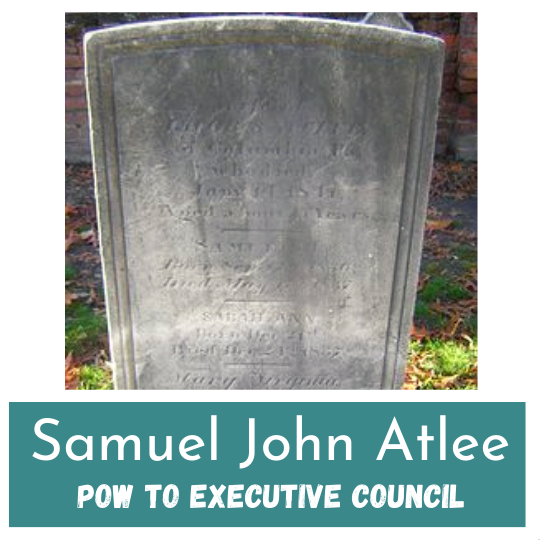Samuel Thompson's War - Maine Enters The Revolution
Samuel Thompson led an extremely brief ‘war’ in Falmouth (now Portland), Maine just after the Revolutionary War broke out at Lexington.
Please Note: I will be referring to Portland as Falmouth in this article because that is what the Founders called it at the time.
Published 7/31/19 - Updated 10/6/21
Samuel Thompson
By 1775, Samuel Thompson had already become a Patriot leader in the coastal town of Falmouth, Massachusetts.
Despite being the uneducated owner of a general store, tavern and inn, Thompson had the respect of his community and served several times on the town board.
The previous year, for example, Samuel represented his peers at the Massachusetts Provincial Congress where, among other things, he was chosen to enforce the Continental Association’s boycott on British goods.
Enforcing the Boycott
Upon returning to Falmouth, Thompson learned that a ship arrived with the intention of unloading banned products.
Thompson demanded the Captain that the vessel sail away. After seeing the ship needed repairs, Samuel allotted time to fix the issues but forbade any unloading of cargo.
Several weeks later a Royal Navy warship arrived, captained by Lieutenant Henry Mowat with the intention of protecting the merchant vessel in the harbor.
Thompson’s War
By May 9, 1775, word arrived of the Battle of Lexington and Concord and the Patriot militia was ready for action.
Approximately four dozen men boarded small boats and surrounded the cargo ship, which led to a standoff (they had no uniforms, so they put spruce tree twigs in their hats which inspired the flag of the Massachusetts Navy).
At the same time, soldiers in town captured Mowat while he was at church.
Mowat was brought to Samuel Thompson who agreed to release him on the condition that both boats leave the harbor.
This nonviolent standoff came to be known as Thompson’s War.
Anti-Federalist/Anti-Slavery
Thompson, for his part, was named Brigadier General of the county militia. He served in this as well as many administrative positions through the remainder of the Revolutionary War.
After hostilities ceased, Samuel Thompson was selected for several congresses which debated whether or not Maine should become a separate state from Massachusetts.
Furthermore, Thompson was elected to represent his county at the State’s Constitutional Ratifying Convention. He came out strongly opposed to the Constitution, saying, “It is strange that a system, which its planners say is so plain...should want so much explanation.”
Additionally, he used the opportunity to rail against slavery. He even criticized George Washington for the practice when he opined, “his character has sunk fifty percent.”
Afterward, Thompson spent the final decade of his life serving in the Massachusetts Assembly with his last election being to the State Senate just months before his death.
Much of the info in this article came from a lecture given to the Maine Historical Society in 1903 by Nathan Goold. He gives a more complete account of Thompson’s life in fairly modern language.
Here are some more Founders who spent at least part of their career in Maine:
Peleg Wadsworth and the Disaster at Penobscot Bay
William Cushing Keeps His Wig On
Albert Gallatin Gets Disqualified
If you’d like to read a modern retelling of this persons in this story, I suggest the below biography of Henry Mowat.
I know, I know, he’s the villain in this tale, but as they say…know your enemy.
‘The Maritime Marauder of Revolutionary Maine’ gives a full account of Mowat’s adventures on the seaboard and paint an important picture regarding one of the few parts of American which was left almost defenseless during the Revolutionary War.
If you’d like a copy you can get one through the Amazon affiliate link below (you’ll support this site, but don’t worry, Amazon pays me while your price stays the same).
Want to get fun American Revolution articles straight to your inbox every morning?
Subscribe to my email list here.
You can also support this site on Patreon by clicking here.
Thanks for your support!








